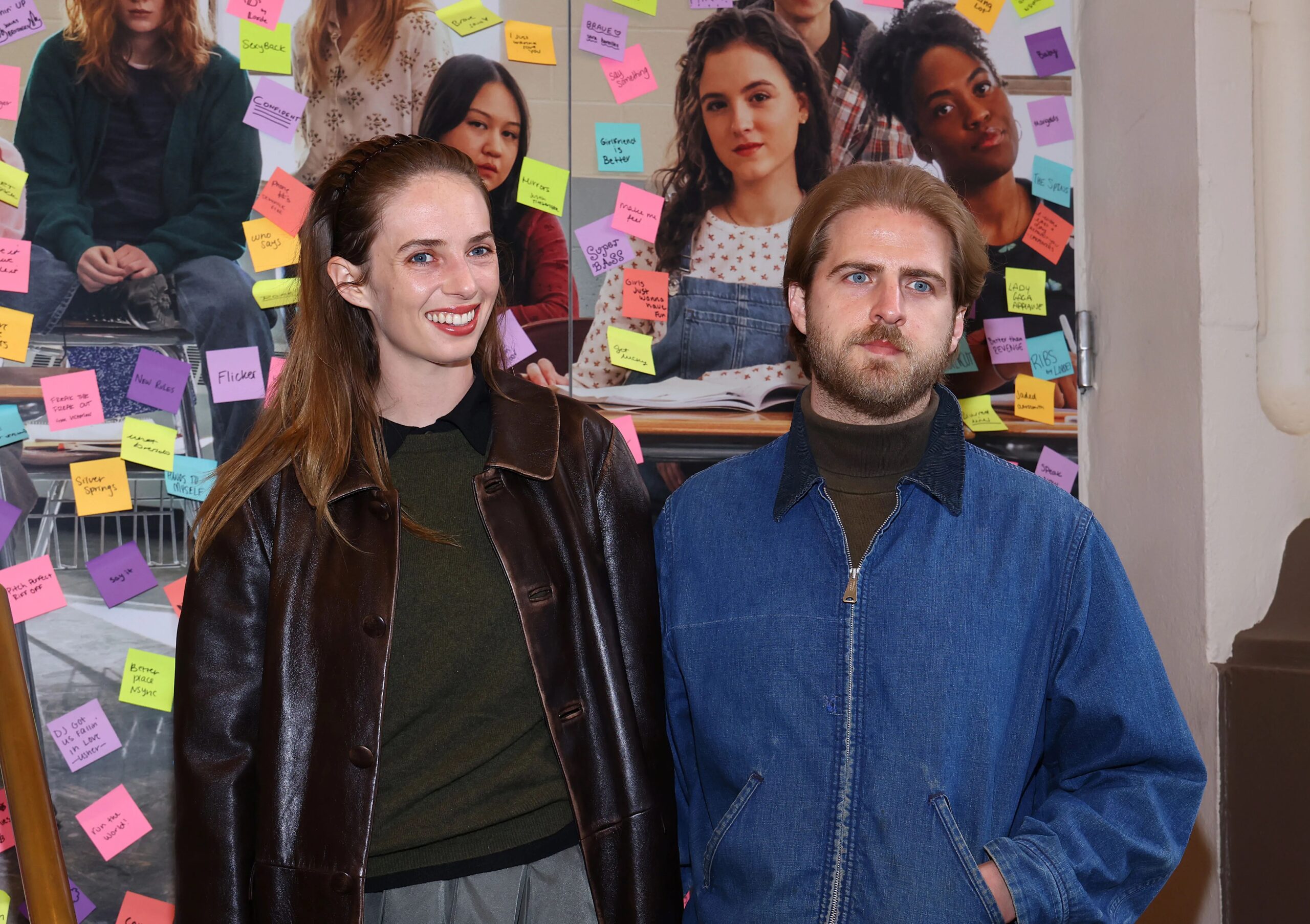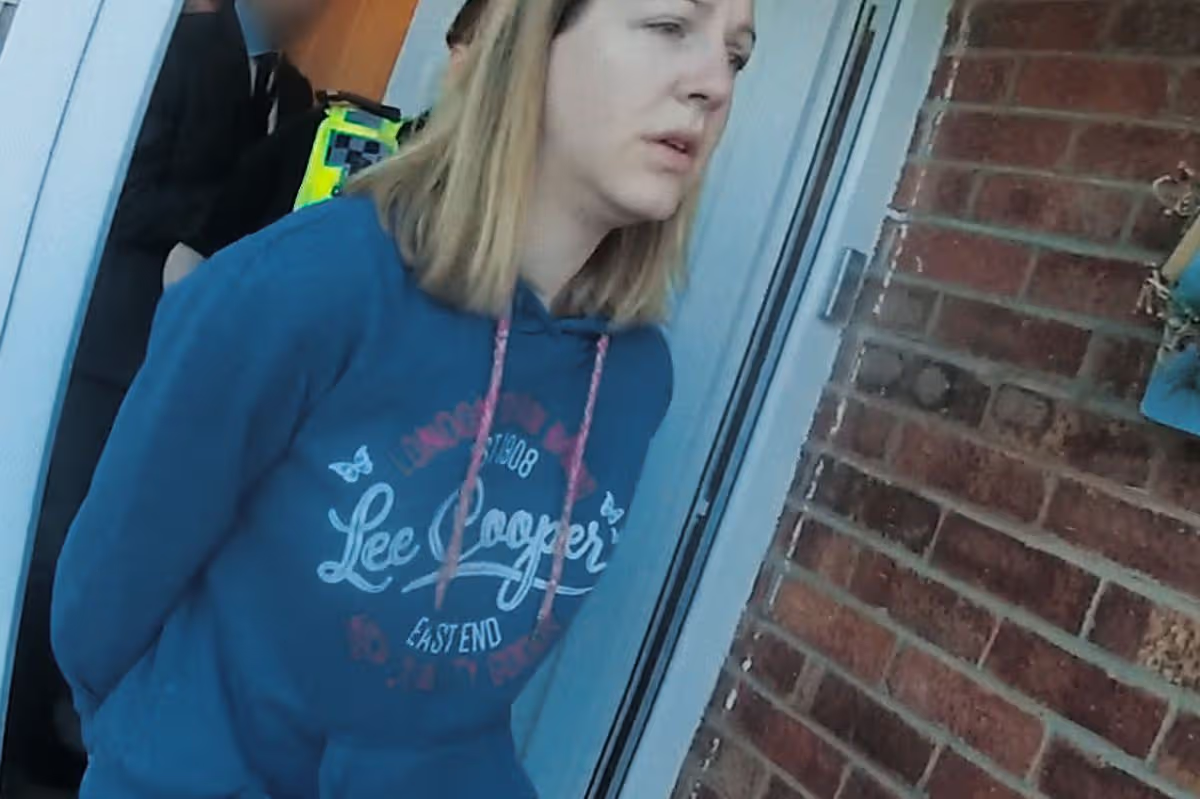New Netflix documentary, The Investigation of Lucy Letby, airs unseen footage of the former nurse’s arrest before she was charged with the murder of seven infants
An explosive new Lucy Letby documentary by Netflix features unseen police footage and new evidence which will make some viewers question her conviction.
The former nurse, 36, has been dubbed the Angel of Death, after she was convicted of murdering seven infants and attempting to murder seven others, with two attempts on one of her victims, between June 2015 and June 2016. But not everyone is convinced of her guilt and there will be more debate with the release of this film. Here are the most shocking moments of the film…
READ MORE: Lucy Letby’s parents who stand by daughter and warn Netflix doc will ‘kill them’READ MORE: Lucy Letby Netflix documentary – when it’s out and everything we know so far
Lucy Letby’s six-word comment to crying parents on arrest
The documentary starts with a hugely emotional scene showing Letty’s arrest by police as she tells her parents: “You know I didn’t do it.”
Letby’s mum Susan wailed in pain as police entered the family home in Hereford in June 2019. It is Letty’s second arrest and her mum says: “Please no, not again no!”
Police ignore her though and continue up the stairs to arrest Letby in her bedroom where she is in a dressing gown.
Letby then walks down the stairs with officers and begs “Please can I see my cat?” and is allowed to stroke the cat before she is handcuffed.
Off camera Letby is picked up by a mic and tells her parents: “You know I didn’t do it.”
And her mum replies: “I know you didn’t. We know that!” Her dad John’s voice can also be heard agreeing.
Letby then refers to her cats when she walks out the front door and says: “It’s alright, look after the boys.”
As Letby leaves the house in a dressing gown her mum can be heard starting to sob at the front door again.
“Just go in mum,” Letby tells her. “Don’t look mum just go. Mum just go in.” The car then drives her to the police station where she faced further questioning.
Parents have criticised the decision for footage of their home to be given to Netflix by Cheshire police, calling it a “complete invasion of privacy”.
The couple raised concerns the documentary might make their home “become a tourist attraction”.
In a statement to The Sunday Times, the couple said: “The previous programmes made about Lucy, including Panorama and the almost nightly news showing her being brought out handcuffed in a blue tracksuit are heartbreaking for us.
“However, this Netflix documentary is on another level. We had no idea they were using footage in our house. We will not watch it – it would likely kill us if we did.
“We have, however, stumbled on pictures of her being arrested in her bedroom in our house and her saying goodbye to one of her beloved cats, which are even more distressing.
“Heaven knows how much more they have to show. All this taking place in the home where we have lived for 40 years. It is in a small cul-de-sac in a small town where everyone knows everyone.
“It is a complete invasion of privacy of which we would have known nothing if Lucy’s barrister had not told us.”
Letby speaks out on Post It note “confession”
For much of the documentary when Letby is shown in police custody she is seen saying “no comment” to questions and looking emotionless. That changes when she is shown post it notes and paper and asked about comments she has made on them.
Letby says: “I just wrote it because everything had got on top of me. It was not long after I had been removed from the unit.
“I felt like I might have hurt them without knowing. That made me feel guilty.
“I felt like in my practice I might have hurt them without knowing through my practice. And that made me feel guilty.
“I was blaming myself. But not because I had done something, because of the way people were making me feel. I felt like I had only done my best for the babies, trying to say that my practice wasn’t good or I had done something, I just couldn’t cope.
“I did just not want to be here anymore. I felt It was all spiralling out of control. And I didn’t know how to deal with it all.
“He was trying to imply it was something I had done.
“It crossed my mind at time whether they were trying to blame me for something somebody else had done.”
Mother of victim speaks for first time
The mum of one of the babies attacked by killer nurse Letby speaks for the first time in the documentary. It tells how Zoe (not her real name) was born on June 20, 2015, but died two days later.
Her mum, given the name ‘Sarah’ in the doc, revealed she watched helplessly as doctors desperately tried to save her daughter.
She says: “It was hard looking at her in the incubator. I couldn’t take her out, but I was able to hold her hand. She was so fragile, small and precious, I became a mummy.
“The doctors were telling us that she was responding very well, that she was responding as expected, and there were no concerns.”
But she tells the documentary of the hoor which followed: “I was fast asleep when a nurse turned a light on. She said, ‘You need to come right now’. I asked, ‘what’s going on?’ And she said, ‘there’s no time we need to go’.
“I remember being wheeled down the long corridor thinking, what’s going on. I felt the panic in the room.
“The doctor was trying everything to keep her heart pumping. He wasn’t giving up. I wanted him to keep fighting. But the other doctor put her hand on his shoulder and said, ‘You need to stop, you need to let her go’.
“The doctor was still holding Zoe, but he stopped what he was doing. That was it. It was finished. It was over.”
Zoe’s mum later tells the show how she later received a call from the police telling her someone had been arrested in connection with the baby’s death: “All of a sudden I realised someone could have purposely targeted my child. We were just completely lost for words.”
When she saw Letby’s picture on the news, she said: “As soon as I saw her face I recognised the nurse straight away. When I visited Zoe for the last time she had a clipboard but she wasn’t really doing any jobs. She was just there, watching us.”
She tells the show: “Preparing for the trial was very challenging. There wasn’t a day I wasn’t thinking about Zoe. I wanted to do her justice, but I didn’t want to go to trial and be biased. I knew Lusy Letby was going to take the stand so I needed to face her.
“For the first time since Zoe’s death I was seeing Lucy Letby. I sat three metres away from her. She looked at me a dozen times, staring. Every time she looked at me I’d have to look down.”
When she appeared in court Letby recalled details of almost all of the 17 children she was accused of harming – except baby Zoe.
Sarah ends the doc saying: “There’s no getting over any of this, there’s the sorrow but there’s the hope and love we have for her.
“Ultimately we’re still here and I want to count my blessings and appreciate what I have. I was strong enough to try again. My husband and I have a beautiful son. He is our reason for everything.
“I have always talked to him about Zoe. He knows she died when she was a baby. He knows she’s in heaven. It’s been storm after storm and it’s not over. But I want to make it through.”
Letby reveals her prison conditions and plans for future
In the doc her friend Maisie reads from a letter she has received from Letby whilst she is in prison.
Letby said: “Maisie, there are no words to describe my situation, but knowing that I have your friendship regardless, is so important and special to me.
“I have my own room and toilet. I’m able to shower each day and go outside for a walk. Getting outside is so important, even though it’s bit chilly. I miss Tigger and Smudge so much, it’s heartbreaking that they cannot understand why I’m no longer there. They must think I’m a terrible mummy. Mum and Dad are taking good care of them, though, and are, no doubt, spoiling them. Poignantly, Letby added: “I’m trying to do all that I can to remain strong and positive. I’m determined to get through this. I will not give up.”
Friend Maisie then begins to cry on screen. Just before reading the letter aloud she had admitted: “Up until the trial and verdict I would write to Lucy and she would write back. Now I don’t know what to say.”
Doctor admits “tiny, tiny guilt” they have got wrong person
Dr John Gibbs was a consultant paediatrician was working at the Countess of Chester Hospital when the baby deaths occurred and suspicion grew around Letty’s involvement.
He concludes his interview in the doc by saying: “Some people are claiming that we consultants had a vendetta against Lucy Letby. Where’s your evidence for that?
“I have been accused online of killing babies, which is shocking.
“I live with two guilts, guilt we let the babies down and tiny, tiny, tiny guilt did we get the wrong person? Just in case.
“I don’t think there was a miscarriage of justice, but you worry that no one actually saw her do it.”
By contrast Letby’s friend Maisie is standing by her even though she has some small concerns she might not be innocent.
Maisie says: “Over the last few years, I’ve got through questioning has she presented one side to me and a different side to other people.
“There’s always doubt, because as much as you know someone, you never know the whole of someone. They can still have things that you don’t know about them. But unless I saw actual evidence, I can’t believe it.
“I know that people think that I support a baby murderer, but she’s my friend and currently, in jail, forever.”
Letby barrister continues to fight for “last chance” retrial
The final twenty minutes of the documentary are given over to how Mark McDonald joined Letby’s legal team after she was convicted of murdering seven infants and attempting to murder seven others, with two attempts on one of her victims, between June 2015 and June 2016.
He insists she has “no motive” and that the evidence used to prosecute her is flawed.
One academic paper co-written by Dr Shoo Lee was used as part of Letty’s conviction. But Dr Lee, a Canadian neonatal care expert, said there were alternative explanations for each of Letby’s convictions for murder or attempted murder.
He tells the documentary: “A young woman could be in prison for crimes that she didn’t commit,” and describes work he has been doing as her “last chance”.
Dr Lee and a panel of international medical experts reviewed the case and McDonald is hoping to use this as new evidence. McDonald says: “I put it into the criminal cases Review Commission, the CCRC, who, with any hope, will send it back to the Court of Appeal, to push for retrial.”
- The Investigation Of Lucy Letby is out now on Netflix.
* Join The Mirror’s WhatsApp Community or follow us on Google News , Flipboard , Apple News, TikTok , Snapchat , Instagram , Twitter , Facebook , YouTube and Threads – or visit The Mirror homepage.






